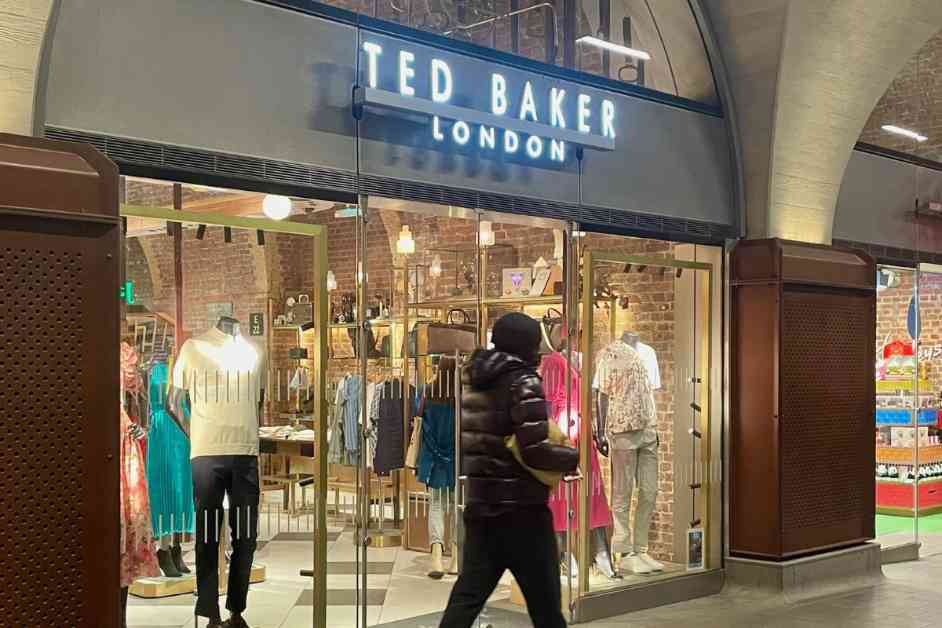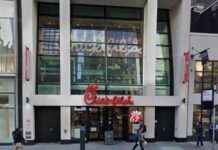Ted Baker, a well-known fashion retailer, is set to close all 31 of its remaining stores in the UK this week, putting more than 500 jobs at risk. The closure is expected to be completed by the end of Tuesday, August 20, marking the end of an era for the brand’s physical presence in the country.
The decision to shut down the stores comes after No Ordinary Designer Label (NODL), the company behind Ted Baker’s UK shops, went into administration in March 2024. Following the administration, 15 stores were already closed in April, resulting in the loss of 245 jobs, according to reports from the BBC. Now, the remaining 31 stores are facing the same fate, leaving many employees uncertain about their future.
Before the administration, Ted Baker operated 46 stores in the UK and had approximately 975 employees, in addition to its e-commerce platform and department store concessions. The brand, known for its unique patterns and floral clothing, was once a staple on high streets across the country, but the recent financial challenges have forced it to reevaluate its operations and make some difficult decisions.
Authentic Brands Group, a US-based firm that owns the intellectual property of brands like Juicy Couture and Reebok, acquired Ted Baker’s rights. NODL attributed part of the company’s financial troubles to issues stemming from a partnership with Dutch company AARC Group and a build-up of arrears during the collaboration. This ultimately led to the collapse of NODL and the subsequent closure of Ted Baker’s remaining UK stores.
While there were initial discussions between Mike Ashley’s Frasers Group and Authentic about a potential deal involving Ted Baker and Reebok, sources close to Authentic have denied that these talks are ongoing. As a result, the future of Ted Baker’s operations remains uncertain, with the closure of its UK stores potentially signaling the end of its presence on high streets.
Despite the challenges faced by Ted Baker, the brand will continue to be available through department stores and other retailers. However, the closure of its physical stores represents a significant shift in the company’s strategy and could have implications for its overall market position.
As the fashion industry continues to evolve, Ted Baker’s closure serves as a reminder of the challenges faced by traditional retailers in an increasingly competitive market. The brand’s unique designs and loyal customer base have been a hallmark of its success, but changing consumer preferences and economic uncertainties have taken a toll on its business operations.
In conclusion, Ted Baker’s decision to close its remaining stores in the UK is a significant development in the retail industry. The brand’s struggles highlight the importance of adaptability and innovation in a rapidly changing market landscape. As Ted Baker navigates this transition, it will be interesting to see how the brand evolves and whether it can regain its footing in the fashion industry.





















